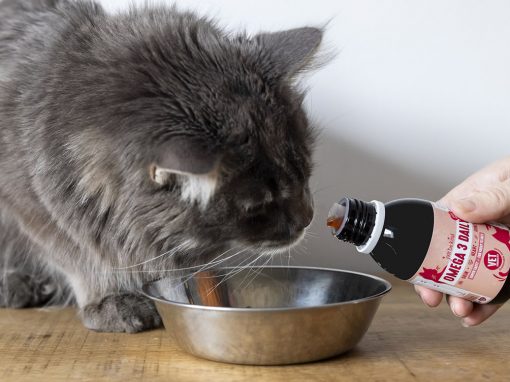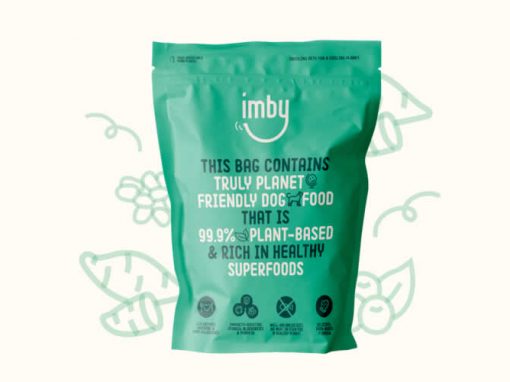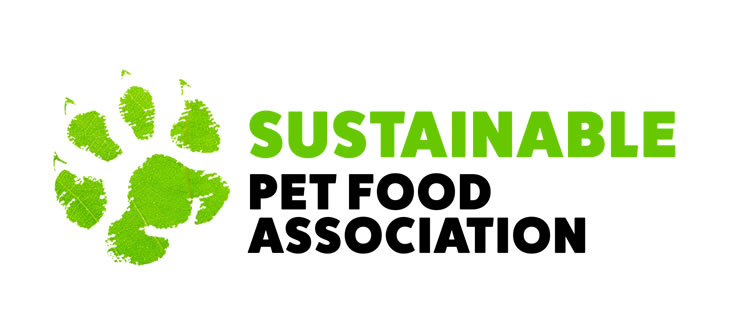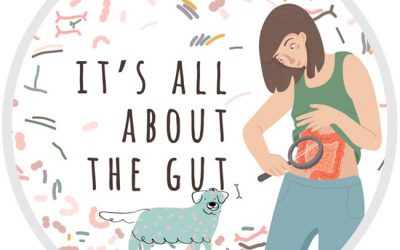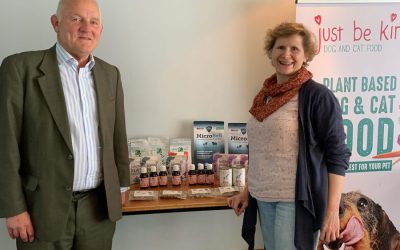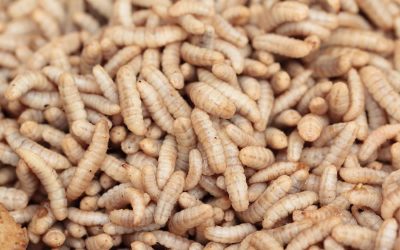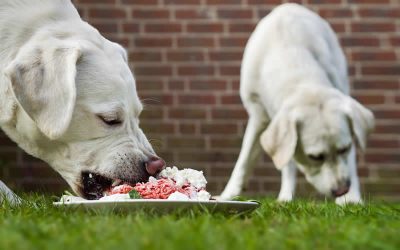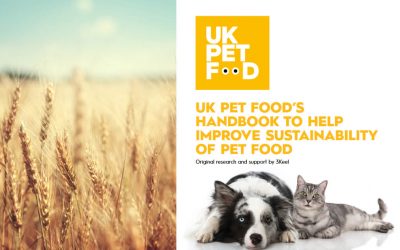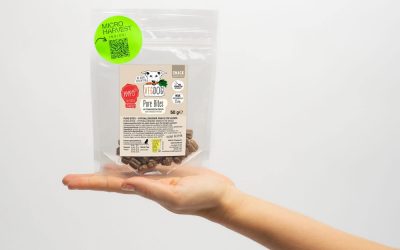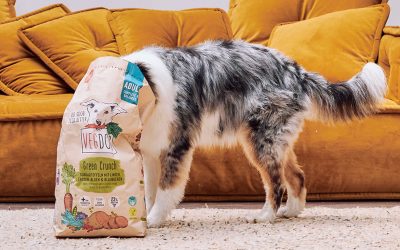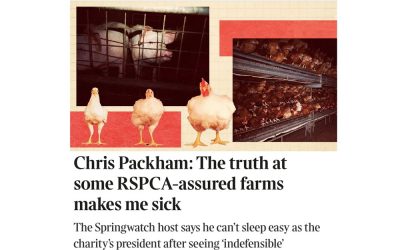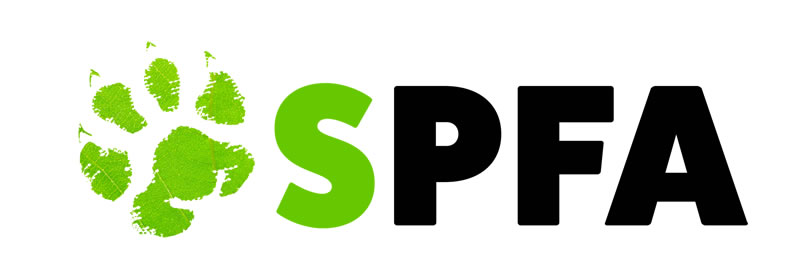When we consider sustainability in the pet food sector, we have to consider how we are going to feed our pets in the next 10 or 20 years and look at what we currently have in place.
The biggest concern that we are faced with is an overproduction of nutrients. With the competition for companies to produce the most palatable diets that will sell above another diet, our current pet foods are “too’’ nutritious – they contain above the required amounts of protein and calories needed to overcome the fierce competition to be the most flavoursome to pets.
This has led to not only an obesity epidemic that we are faced with in both cats and dogs; but there is a growing concern that the over production of excess meat-based pet foods is definitely not sustainable.
Some stark and frightening statistics –
Agriculture contributes significantly to global greenhouse gas emissions – estimated in the latest IPCC report to be ~ 23%. Second only to electricity and heat production.
If the dogs of the world were to form a country, it would be the 5th largest meat consuming country on the planet.
What we produce to feed our pets (and ourselves) has a profound impact on the environment.
Food and agriculture lie at the heart of tackling climate change, reducing water stress and pollution, restoring lands back to forests or grasslands, and protecting the world’s wildlife.
- 94% of mammal biomass (excluding humans) is livestock. Of the 28,000 species considered to be threatened with extinction, agriculture and aquaculture is a threat to 24,000 of them.
- 82% of ALL the birds on the planet are chickens (2020 – possibly even higher now?!)
Which pet foods are the most concerning and least sustainable?
The rise in raw meat being fed to both cats and dogs has resulted in the production of parts of an animal or bird that would normally be fed to us, now competing with the pet food market. The same has happened with the rise in companies selling ‘freshly prepared’ human grade meats. These too require more animals to be slaughtered to keep up with the growing demand for the parts of an animal that would be fed to humans rather than the byproducts of the meat industry being used to feed our pets.
Both of these contribute to those alarming statistics shown above.
Feeding your dog a meat or fish-based food is contributing significantly to not only greenhouse gases, but also to the use of phosphates, antibiotics, and pesticides.
Whilst vegan dog food still has an impact on the environment (crops have to be grown, processed, packaged and transported) it is a far smaller impact than that of traditional pet foods.
A paper published on Plos.Org suggests that finding alternative protein sources for pet food would result in a significant reduction in the negative environmental impact of pet food overall.
Any pet food containing fish is also the least sustainable. Fish is not a species appropriate diet to feed either dogs or cats (both being ancestral land and desert mammals in the case of cats), who would never normally ‘hunt’ fish if left to fend for themselves.
There are concerns too that fish contain increasing amounts of heavy metals from polluted oceans that accumulate in their liver and kidneys and these could be harmful if fed to our pets. This includes farmed salmon that are fed caught fish and this bioaccumulation of heavy metals is made worse if salmon is then added to pet food.
There is a similar concern with any pet foods containing added fish oils as a source of essential fatty acids for our pets. These cannot be supplied in sufficient amounts currently to supply the human food chain, so we should not have the addition of these fish oils in any pet foods. This will result in continued overfishing when we are already at a critical point with our ocean ecosystem.
Yet again, is the concern of these heavy metals that accumulate in the liver of fish causing problems in our pets fed fish oils that we may be unaware of due to the bioaccumulation of these heavy metals.
WHAT IS THE SOLUTION?
The clearest solution to all these concerns about sustainability in the pet food industry, is to choose a pet food that we can safely feed to our pets for the next 10, 20, 30 years that preserves our oceans and our fragile biodiversity by not choosing to contribute to the damage caused by animal agriculture.
Firstly, choosing Algae oil to replace fish oil is a very viable solution. Algae oil provides the purest form of DHA and EPA Omega 3 as it is made from the nutrient rich microalgae where fish get their Omega 3’s from in the first place. We have new companies in the UK working on the solution such as MiAlgae in Scotland, but it is not a new concept in Europe where Algae has been farmed for many years in hugely sustainable bioreactors to produce pure Omega 3’s.
Not only is Algae oil free from heavy metals and contains pure high levels of DHA and EPA Omega 3’s; but it is also highly palatable to both dogs and cats with an ‘umami’ flavour, so it makes a welcome addition to any pet foods.
If we can replace our Omega 3’s with a plant-based source in our pets, can we replace all of their food with a plant-based source to be nutritionally complete?
The answer is a resounding yes for dog food, and we have thankfully had a surge in companies producing nutritionally balanced and very palatable vegan dog foods as shown here.
These companies have been able to follow all FEDIAF guidelines to be fully balanced and the foods are shown to be very palatable to dogs.
What about cats?
All we can say, is ‘watch this space’. The developments in plant-based dogs are happening rapidly with so many companies producing balanced vegan dog foods, and although we are not there yet with cats, there is something just SO exciting developing that makes perfect sense……the development of cultured meat made from mouse!!
It means that cats receive a natural and nutritionally sound diet as it is what they would choose to normally eat, and…..not a single mouse would have been harmed at all!
Canine Microbiome Study Significant Findings
Dogs have adapted genetically to digesting starches and that explains why they do so well on a complete plant-based diet
Studies claim positivity with alternative pet diets
Many owners willing to consider alternative pet diets, studies claim with a high proportion of cat and dog owners now prepared to explore alternative, more sustainable diet options
Plant-based vs Insect-based dog food
Insect Protein-Based Diets as Potential Risk of Allergy in Dogs, and Higher Cost
Avian Flu Pandemic Risk from Raw Feeding
The APHA (Animal Plant and Health Agency.gov.uk) sends anyone interested in environmental matters, emails about looming threats. As a vet, this is what I have received recently in my email inbox - In my inbox yesterday 11th November - An Avian Influenza Prevention...
Raw dog and cat food fuelling spread of antibiotic-resistant bacteria
The very real and always present danger of this latest study yet again finding antibiotic-resistant bacteria in raw commercial cat foods!
UK Petfoods MUST Keep Up!
Using animal byproducts in meat and fish-based pet foods is NOT sustainable!
Cats dying after eating Avian-Influenza-contaminated raw pet food!
Does vegan cat food provide the solution?
Fermented Protein Pet Food – the Future?
Is precision fermentation our future way to feed not only our pets, but ourselves too? Yes it most certainly is!
Could our dogs or cats trigger an avian influenza pandemic?
As our memories of the last COVID 19 disappear, the potential for another pandemic looms and pets could play a role in transmitting it
Using microbial protein for the very first time in dog treats!
This first-of-its-kind protein is derived from bacteria that have been consumed by humans for centuries in foods such as kimchi, kefir, and sauerkraut
BVA says it is possible to feed dogs plant-based
The British Veterinary Association (BVA) has ended its opposition to (nutritionally-sound) vegan diets for dogs
The truth about ‘RSPCA Assured’ farms
The footage obtained from these farms, including distressing images of decomposing pigs, dying chicks, and salmon with missing eyes, is simply indefensible
Recommended sustainable pet foods
